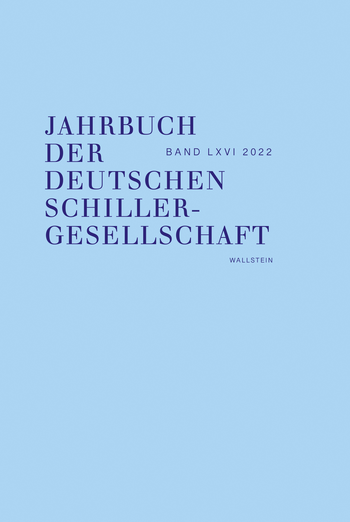

Building on Friedrich Schiller’s canonisation as a poet of the entire nation that was united in the reception of his works, at least in the 19th century, I examine his utilisation and functionalisation of the term ›Pöbel‹ (rabble). According to concepts of history of ideas and cultural studies, I understand the usage, however pejorative and excluding, as a provocative means of addressing the audience. Analysing selected dramas (‘Die Räuber’, ‘Die Verschwörung des Fiesko zu Genua’, ‘Don Karlos’, ‘Wallensteins Tod’ and ‘Maria Stuart’) as well as some of Schiller’s theoretical texts (for example ‘Gedanken über den Gebrauch des Gemeinen und Niedrigen in der Kunst’), I map out the semantic tendencies of the term which are expressed by the ‘dramatis personae’. Although it could be assumed that Schiller’s view of the people may have changed over the events of the French Revolution, I conclude that Schiller used the term ›Pöbel‹ as a dramaturgical tool to ›aesthetically educate‹ his audience during all stages of his career.